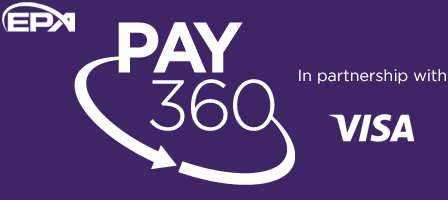
The United Kingdom is a global hotspot for emerging fintech and payments technology. From introducing Faster Payments to rolling out Open Banking, the UK rides the cutting edge of innovation. This leading position was reinforced at PAY360 by Marion King, Director of Payments, NatWest in her “The Balance of Payments” Keynote.
Marion discussed some of the competitive tensions which exist in the payments industry.
Firstly, in our increasingly digital society we are experiencing a “dash from cash”. This is a tension from physical to digital payments. Digital services provide numerous advantages. They save time, provide insight and facilitate instantaneous gratification, liberating consumers to spend time doing other things. As exciting as this might be, it also risks excluding some people from the economy, for example, those that do not use online banking. Nearly 50% of people in the UK, many of whom are paid in cash use it as a budget control mechanism and say that cash is a necessity for life. Embodying the tension, the US state of Philadelphia has banned cashless stores, in contrast to Amazon launching 3,000 physical cashless shops in the US. A cashless economy may yield many advantages, but as Marion noted, the transition must be gradual and carefully managed.
Secondly, Marion highlighted a tension between keeping customers safe & secure versus real-time payments settlement. In the UK there is a significant appetite for frictionless payments. People want to pay and they want to pay fast. Faster Payments, launched when Marion was CEO of VocaLink, has seen a remarkable 23% year-on-year growth in its 11 year history. However, frictionless payments potentially have risk. Friction brings checks and balances, giving fraudsters less opportunity to steal payment details and make transactions. To help combat fraud the industry are introducing Confirmation of Payee, a mechanism that will cross-check a payee’s account number and sort-code to their name before validating a payment.
Thirdly and finally, Marion highlighted the tension between data analytics versus privacy and security. Data has become a valuable asset in today’s economy. 90% of the world’s data was generated in the last two years. It must be used to make the right decisions. To understand expectations, explain trends and serve customers. Regulation such as GDPR ensures that customers retain control over how their data is used. However, as data becomes increasingly consensually shared between parties, as an industry we must ensure that we are acting diligently to protect the privacy and the security of our customers.
The excitement of innovation must be carefully balanced by appropriate considerations of risks to our customers and the society in which we live. By appropriately steering our way through tensions between a cash versus cashless economy, secure payments versus real-time settlement, and privacy versus data, we will continue to make positive strides towards keeping the trust of our customers.







Log in to access complimentary passes or discounts and access exclusive content as part of your membership. An auto-login link will be sent directly to your email.
We use an auto-login link to ensure optimum security for your members hub. Simply enter your professional work e-mail address into the input area and you’ll receive a link to directly access your account.
Instead of using passwords, we e-mail you a link to log in to the site. This allows us to automatically verify you and apply member benefits based on your e-mail domain name.
Please click the button below which relates to the issue you’re having.
Sometimes our e-mails end up in spam. Make sure to check your spam folder for e-mails from The Payments Association
Most modern e-mail clients now separate e-mails into different tabs. For example, Outlook has an “Other” tab, and Gmail has tabs for different types of e-mails, such as promotional.
For security reasons the link will expire after 60 minutes. Try submitting the login form again and wait a few seconds for the e-mail to arrive.
The link will only work one time – once it’s been clicked, the link won’t log you in again. Instead, you’ll need to go back to the login screen and generate a new link.
Make sure you’re clicking the link on the most recent e-mail that’s been sent to you. We recommend deleting the e-mail once you’ve clicked the link.
Some security systems will automatically click on links in e-mails to check for phishing, malware, viruses and other malicious threats. If these have been clicked, it won’t work when you try to click on the link.
For security reasons, e-mail address changes can only be complete by your Member Engagement Manager. Please contact the team directly for further help.